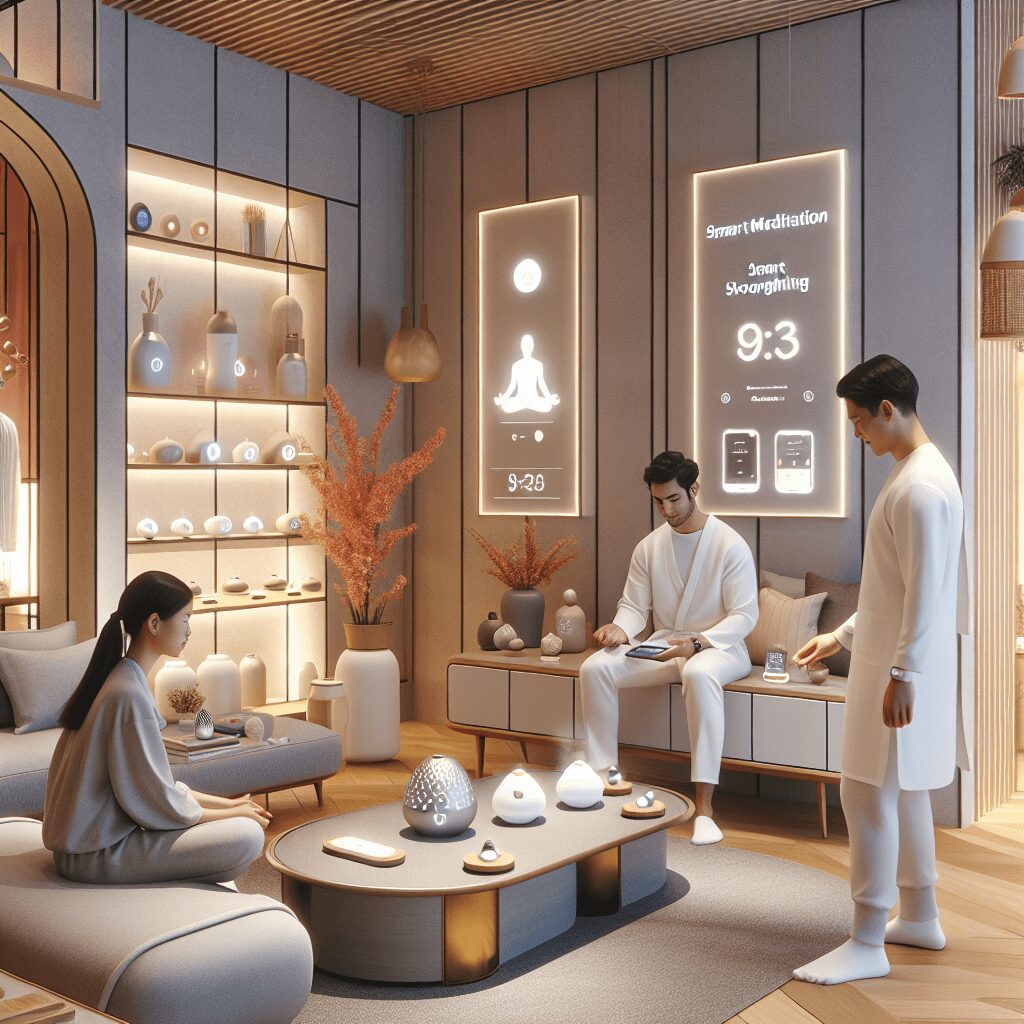
Prioritize your mental well-being daily. Enhance your life by nurturing your mental health with the Smart Meditation app. Break free from stress, alleviate anxiety, and enhance your sleep quality starting today.
How Has Meditation Made Its Way To American Culture?
Meditation: A Journey from Ancient Traditions to American Mainstream
Once cloaked in the mystery of Eastern spirituality, meditation has steadily woven its way into the fabric of American culture. Far from being an esoteric practice reserved for the enlightened few, it has become a buzzword synonymous with self-improvement, stress reduction, and overall wellness. But how did this transformation come about? And more importantly, what has fueled its surge from the fringes of society to a mainstream phenomenon?
The Eastern Wind: How It All Began
To understand meditation’s meteoric rise in the U.S., we must first jet-set halfway across the globe and rewind several millennia. Originating in the spiritual traditions of India, China, and Japan, meditation served as a conduit to higher consciousness and enlightenment. Fast forward to the mid-20th century, when intrepid American seekers, disillusioned by the materialism and spiritual vacuum of the post-war era, turned their gaze eastward in search of greater meaning.
The Beat Generation, featuring luminaries like Jack Kerouac and Allen Ginsberg, were among the first to popularize the idea of meditation as a path to expanded consciousness. Their tales of Zen Buddhist retreats and yogic practices sparked curiosity among the American populace. However, it was the Transcendental Meditation (TM) movement, introduced by Maharishi Mahesh Yogi in the 1960s, that turned the trickle of interest into a national tidal wave. With its promise of effortless practice and tangible benefits, TM became the darling of celebrities and ordinary folks alike.
Mainstreaming Mindfulness: A 21st Century Phenomenon
Fast forward to the 21st century, and meditation has taken on new life, thanks in large part to the pioneering work of individuals like Jon Kabat-Zinn. His development of the Mindfulness-Based Stress Reduction (MBSR) program in the late 20th century catapulted mindfulness meditation into the realms of healthcare and psychology. Suddenly, meditation wasn’t just a spiritual practice but a scientifically-backed tool for managing stress and enhancing quality of life.
The digital revolution has played a colossal role in democratizing meditation. With a smartphone in hand, anyone, anywhere, can now access guided meditations, timer apps, and a wealth of resources at the tap of a screen. Furthermore, the advent of social media has facilitated a never-before-seen sharing of experiences and testimonials, helping to debunk myths and normalize meditation as a regular wellness practice.
Why Meditation Matters Now More Than Ever
In the fast-paced, high-stress environments that define much of modern life, meditation offers a much-needed respite. Its appeal lies in its simplicity and accessibility; no fancy equipment or expensive gym memberships required. Beyond stress reduction, meditation is touted for its ability to improve concentration, boost emotional well-being, and even enhance creativity.
Perhaps most compelling is the burgeoning body of scientific research backing these claims. Studies have shown that meditation can indeed effect significant changes in the brain, leading to improved attention, lower anxiety levels, and better stress management. This blend of ancient wisdom and modern science has proven irresistible, cementing meditation’s place in the American wellness landscape.
Final Thoughts: A Culture Embracing Stillness
From the lotus position to the living room, meditation’s journey into the heart of American culture is a testament to its universal appeal and adaptability. No longer an esoteric practice shrouded in mystery, it has become a cornerstone of holistic health, touching millions of lives across the nation. As society continues to grapple with the challenges of the 21st century, meditation stands as a beacon of hope, offering a path to inner peace and resilience amid the chaos.





